DSM bets on material science to help vehicles shed weight smartly
As lightweighting becomes the need of the hour for automakers, engineering plastics major looks to explore deeper synergies with OEMs and suppliers to drive in innovation.
In a connectivity-driven world, each passing day brings in news of new technologies, products and solutions. While global megatrends like Connected, Autonomous, Shared and Electric (CASE) are taking shape in developed markets, the Indian automotive industry is readying for the new crash test norms compliance starting this month and the upcoming BS VI norms from April 2020, an area where Dutch multinational Royal DSM aims to play a key role.
DSM began its India operations in the 1990s with its headquarters in Gurgaon, Delhi. At present the company has a manufacturing and R&D centre for its engineering plastics business in Ranjangaon, which also houses its Solar Tech Demo Center. It also has its Global Shared services centre in Hyderabad, and a total of 865 employees, which includes the recent acquisition of SRF’s engineering plastics (85 employees).
Automotive, electronics biggest drivers for DSM
Plastics play a key role in the automotive industry and are now being increasingly used in the auto industry to provide rigidity while also reducing vehicle weight. The company has been working closely with the domestic auto industry for more than 25 years, and DSM Engineering Plastics India has been directly selling and manufacturing engineering plastics since 1999 when it acquired Cenka Plastics. In January 2009, DSM Engineering Plastics India started its greenfield operations with a world-class manufacturing facility set up in Ranjangaon, Pune.
The company has a broad portfolio of high-performance materials, including Stanyl heat-resistant PA46, Stanyl ForTii high-performance PA 4T, EcoPaXX 70 percent bio-based PA410, Akulon PA6 and PA66, Arnitel thermoplastic copolyester, and Arnite polyesters (PBT and PET).
Giving an example of the company's product capabilities, Anand Diwanji, Business Director, DSM India (pictured above) says: "Stanyl and Akulon Diablo offer good thermal stability over extended periods of time at elevated temperature. The technology provides a significant improvement in long-term temperature resistance components such as air intake manifolds with integrated intercoolers, ducts, charge air cooler end caps, mixing tubes and resonators used in the latest car engines. Arnite A is a 35 percent glass-fibre reinforced polyethylene terephtalate resin that brings toughness, durability and excellent dimensional stability inside the body and/or the control housing itself. In fact, it has been shown to perform reliably over more than 1 million brake cycles."
DSM is a science-based company active in nutrition, health and sustainable living. The automotive industry is one among many industries it serves but it is also one of the company's most demanding segments. According to Diwanji, "The automotive industry accounts for approximately 7 percent of DSM’s total sales at a total revenue of approximately 9 billion euros (Rs 70,020 crore) per annum. Within the Materials segment (which accounts for almost 3 billion-euro sales (Rs 23,340 crore), automotive together with electronics are the biggest segments."
In 2016, the company set up its first R&D Centre in Ranjangaon, near Pune, as the company saw the Indian market getting matured in terms of its approach towards product development. "We had a clear focus of supporting domestic customers in an efficient manner. Back then, our customers appreciated our efforts, commitment towards customers. Today, we feel that we have been successful in achieving customer-centricity with the help of our R&D centre. In addition to serving our domestic customers, we have been supporting our global business and global customers as well," adds Diwanji.
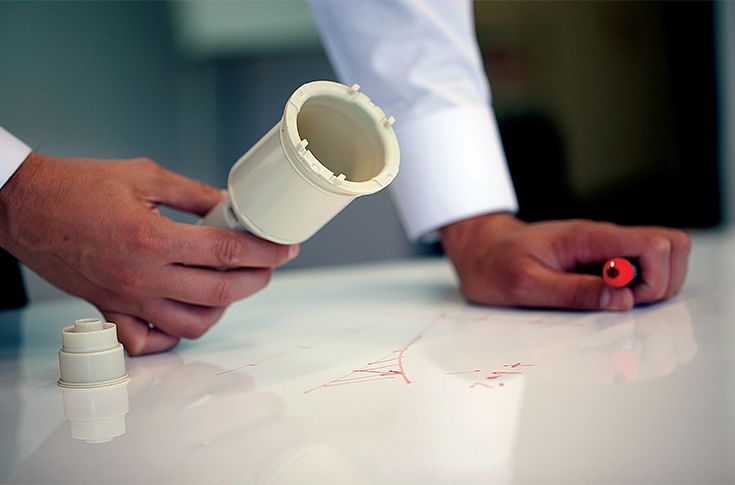
DSM's Arnite is used to manufacture the brake booster valve body — a key component of the system — and is already deployed in more than 300 million vehicles globally.
Talking about new trends in the automotive industry, Diwanji adds, "One of the latest developments in turbocharged engines is the Integrated CAC-AIM module. It enables higher engine performance while meeting the new emission standards by integrating the charge air cooler (CAC) into the air intake manifold (AIM), thus creating a more effective way to cool the air. This increases the temperature in the AIM (up to 230deg C), as well as the mechanical requirements for the materials used. When integrating the CAC into the AIM, the length of pipe previously needed to reach the air-to-air cooler in the front of the car is decreased, which increases engine responsiveness. Thanks to this development, automobile manufacturers can meet India’s emission standards while producing higher performing engines."
Growing need for innovation in plastic materials
The company believes that to remain competitive in the rapidly changing world requires a materials partner who can help seize new market opportunities with a fast and flexible approach to innovation. DSM says it has been a preferred partner because it "anticipated these industry changes timely and has been working for many years to build its strong position in both the automotive and electronics markets. About 90 percent of all new cars and close to all mobile electronics devices incorporate a DSM material these days – everywhere in the world. Our ForTii Ace for instance, replaces die-cast metals in highly challenging automotive applications such as powertrain, transmission, chassis and thermal management applications. A family of polyamide-based UD tapes with endless carbon or glass fiber reinforcements are lightweight alternatives to metals in several automotive applications. UD tapes, tape-based 2D fabrics, and cross plies are used in structural parts."
"As transportation evolves into the age of connected cars, the automotive and electronics industries are converging like never before. As the industry moves to meet the upcoming demands of connected, autonomous, Internet of Things, and a sustainable circular economy, electrification in cars will continue to increase. With that, the weight of plastics in each vehicle will continue to grow. There is a growing need for speed in the innovation of plastic materials with the right balance of properties," adds Diwanji.
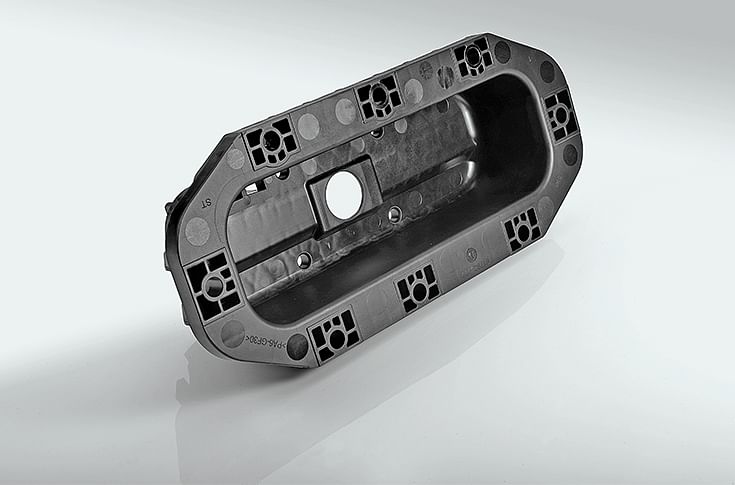
Airbag housing using Akulon polyamide 6, weighs less than the metal it replaces, costs less to manufacture and withstands extreme conditions.
In addition to the megatrends, DSM sees a huge opportunity from the automotive industry to reduce the weight of cars as much as possible to continuously meet fuel consumption and tailpipe regulation norms. This can be achieved by metal-to-plastic conversion for different automotive components, which also sees demand from hybrid cars and battery electrical vehicles to keep the weight as low as possible in order to increase the driving range or reduce the costs of the batteries.
Sharing some highlights about the company's capabilities, Diwanji says, "Our engineering plastics Akulon polyamide 6 (PA6) has been used for airbag containers in more than 120 million vehicles. With a 20-year history without a single failure, this material has helped the industry evolve from a metal airbag container that weighted 3.2kg with 20 working parts, to a container weighing as little as 1kg, made from Akulon with only five working parts. Engineering plastics like Arnite are used in brake booster valves in more than 300 million vehicles (without a single failure). And advanced materials like Stanyl reduce frictional torque in timing chain systems by 10 percent within the critical engine speed range, equating to a fuel efficiency improvement of more than 0.4kpl."
One of the company's key example for India lies in one of the country's popular compact cars, where DSM was able to use engineering plastic for its oil pan, thus reducing the weight by almost 50 percent.
Targeting two-wheeler and electricals business
In May 2019, DSM India reached an agreement with SRF to acquire its engineering plastics business, which is expected to be completed by Q3 2019. This was a significant move, as DSM India (all businesses) contribute around 3 percent to DSM's global business, which the company said was partially linked to the market size. The acquisition of the SRF business is highly complementary to DSM in India especially in the two-wheeler and electrical industry segments.
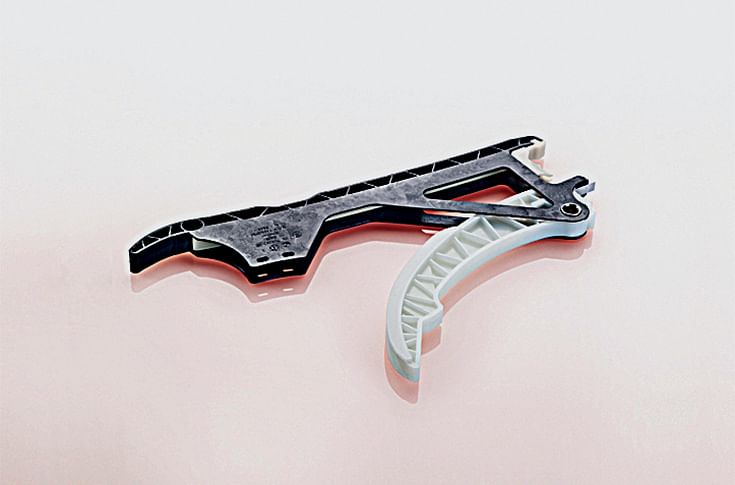
DSM says by using Stanyl PA46 for the slide shoes, replacing PA66, the amount of friction in a timing system can be reduced, leading to a lowering of CO2 emissions.
This allows DSM to further grow its business without having to significantly invest in capital expenditures. "With strong anticipated market growth in the coming years, fueled by increasing domestic demand from a growing middle-class and weight reduction/metal replacement in automotive, this acquisition will help DSM to meet the current and future needs of its customers in India and also save DSM from investing in additional capacity for further growth in India," reveals Diwanji.
This acquisition helps DSM enhance its offering of Akulon 'RePurposed' portfolio. This is a portfolio of polyamides developed for use in various non-critical applications across the industry spectrum. The company says SRF, over the years, has developed a highly sustainable supply chain for post-consumer and industrial polyamide waste, which serves as one of the main feedstock for this portfolio, which complements DSM’s concentrated efforts around 'Circular economy'.
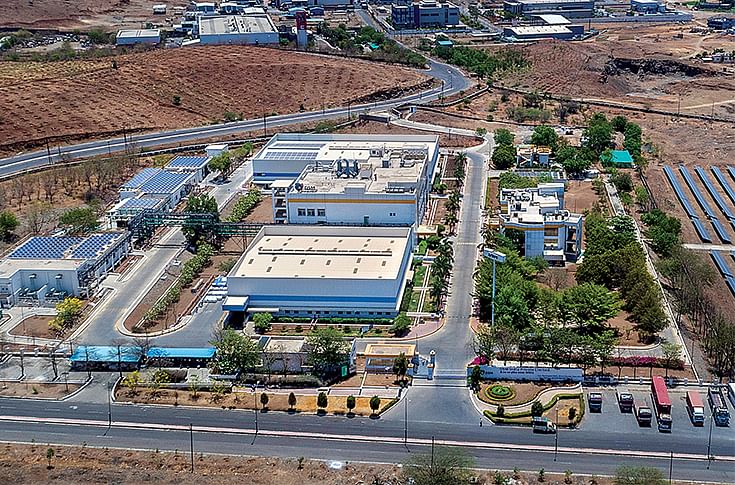
DSM India's Ranjangaon plant, near Pune, is said to be the largest polyamide and polyester compounding facility in the country.
As the domestic auto industry targets improved efficiency and reduction in vehicle weight, DSM India with its expertise in engineering plastic and electronics looks to ride the trend by helping automakers stay future-fit.
(This article was first published in the October 1, 2019 issue of Autocar Professional)
RELATED ARTICLES
RSB Group Prepares for Hyper-Growth: New Markets, Tech and Mission ₹10,000 Cr
From a small workshop in Jamshedpur to an engineering group with global reach, RSB Transmissions is preparing for its mo...
Beyond Helmets: NeoKavach Wants to Make Rider Airbags India’s Next Safety Habit
As premium motorcycles proliferate and riding culture evolves, an Indo-French venture is betting that wearable airbags, ...
Inside Mahindra Last Mile Mobility’s Rs 500 Crore Modular Platform Strategy
Mahindra Last Mile Mobility has launched the UDO, an electric three-wheeler built on a new Rs 500-crore modular platform...






 04 Nov 2019
04 Nov 2019
 11225 Views
11225 Views




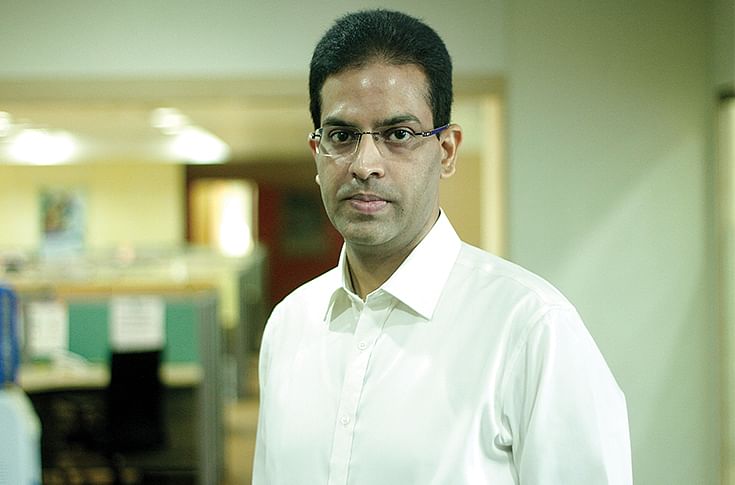

 Darshan Nakhwa
Darshan Nakhwa



 Shahkar Abidi
Shahkar Abidi

